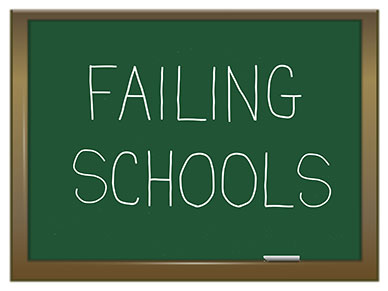
by Georgia Center for Opportunity | May 25, 2017
Earlier this month New York Times columnist David Leonhardt joined the nationwide conversation with his article — “School Vouchers Aren’t Working, but Choice Is”—tackling the crucial issues of charter schools and vouchers in the broader school choice debate.
Mr. Leonhardt is right on point when he writes that charter schools “have the potential to help a lot of poor children in the immediate future.” Indeed, school-age kids have no time to spare when it comes to academics. Falling behind a few months in any grade can put them permanently behind.
Unfortunately, while we praise Mr. Leonhardt for acknowledging the many triumphs of charter schools, his analysis of the success of parental choice vouchers, which grant tax dollars to families to allow their children to attend private schools, falls short of the mark.
There are several glaring shortcomings with the study cited by Mr. Leonhardt. Conducted by the U.S. Department of Education, the study examined voucher use among public schools in the District of Columbia. Mr. Leonhardt uses the study’s findings to repeat a number of myths surrounding the question of parental choice vouchers.
First, Mr. Leonhardt praises random lottery selection for public charter schools and claims a major flaw in voucher programs is the ability of private schools to choose only the best students. But he fails to acknowledge that the voucher students examined in the Department of Education study received vouchers by winning a random lottery as well—the same way students get into public charter schools.
Secondly, the study only measured student performance after one year. Anytime a child shifts to a new education environment, the initial disruption frequently stunts test scores in the short term—partly due to a more rigorous curriculum and higher standards than the school they came from.
Students generally don’t switch schools unless there is a need, so those receiving vouchers or other forms of choice are usually already playing catch-up academically—and are doing so in a new school environment.
Along the same lines, the study compared apples to oranges by failing to track and evaluate these students before they switched to a new school via a voucher. Many students seek a different school environment—be it a public charter school or a private school through a voucher—because they aren’t learning well in their current environment.
Academic performance is best measured over a longer period of time. At a minimum, students should fully transition to a new school climate before measurements take place. In order to reach an accurate conclusion, a study would need to measure the same students before receiving a voucher and after—not just comparing to a control group that remained in public schools.
And finally, this point is crucial to remember: The D.C. voucher program is only one of many across the nation. So the research must be reviewed as a whole before declaring the whole idea of school choice vouchers a failure.
We commend Mr. Leonhardt for acknowledging the numerous successes of charter schools in helping students and families. And we applaud him for encouraging opponents of school choice “to look at the full evidence with an open mind.” But we also encourage Mr. Leonhardt to take his own advice by keeping an open mind on private-school choice through vouchers, even as he urges progressives to do the same with public charter schools.
All of us would do well to remember that education policy is not a zero-sum game. We need to stay focused on what kids need most—immediate access to a quality education.

by Georgia Center for Opportunity | May 16, 2017
America was founded on the principle that people should have the opportunity to flourish, to live out their dreams – to be happy. Our country’s forefathers cherished this important truth so much they included it in the United States’ Declaration of Independence. America was designed as a place where all citizens have “certain unalienable Rights, that among these are Life, Liberty and the pursuit of Happiness.”
While people search for satisfaction in life in various ways, employment continues to top the list as a measurement of happiness.
“In America, job satisfaction relates to life satisfaction. Among those who say they are very happy in their lives, 95 percent are also satisfied with their jobs,” writes Arthur Brooks, President of the American Enterprise Institute, in his book The Road to Freedom. “Only 5 percent say they are not satisfied with their work. The evidence also shows that the relationship is causal: job satisfaction actually increases life happiness.”
While not everyone has their dream job, working allows people to achieve something greater than themselves.
In the recently published book The Human Cost of Welfare, authors Phil Harvey and Lisa Conyers address the many reasons why work is so instrumental in fostering happiness. The book’s authors conclude that job achievement is needed for personal worth. Boredom and depression can result from lack of work, and being needed makes people feel valued and important. Depending on others for basic daily living needs decreases self-worth.
At Georgia Center for Opportunity, our goal is to help individuals flourish through productive work. More than half a million Georgians are without work, but desire the opportunity to succeed. Through extensive research and collaboration with community leaders, state lawmakers and businesses, we’ve been able to help improve work opportunities for ex-offenders. We’re also exploring practical options for real reforms to Georgia’s Welfare System, in hopes of motivating recipients to self-sufficiency.
Through collaboration with community partners, area nonprofits, local businesses, and community leaders, GCO has facilitated a series of “Hiring Well, Doing Good” discussions within the Atlanta area. These conversations give local business and organizations an opportunity to connect and share their best-practices for hiring unemployed or underemployed men and women while improving a company’s bottom line.
The evidence remains true even for part-time workers and those not receiving large paychecks. Brooks’ research shows that “[A]dults who worked ten hours a week or more in 2002, 89 percent said they were very satisfied or somewhat satisfied with their jobs. … There is no difference between those with below- and above-average incomes: 89 percent are satisfied.”
It’s quite clear that working is far more valuable than just the paycheck received at the end of the day.

by Georgia Center for Opportunity | May 4, 2017
“Children of today are the leaders of tomorrow and education is a very important weapon to prepare children for their future roles as leaders of the community.” – Nelson Mandela
The Georgia Department of Labor recently released a list of the state’s chronically failing public schools, which are schools that have received an F for three consecutive years on the College and Career Ready Performance Index.
More than 87,000 Georgia students are currently impacted by one of the 153 failing schools on the list. Failing schools equal failing students, and Georgia’s children deserve much better.
Georgia’s overall education data doesn’t provide much of a silver lining. Sixty-six percent of Georgia’s fourth graders are reading below proficiency, which means they cannot read at grade level. The data only gets more grim as grade levels increase – among eighth graders 70 percent are below proficiency in reading. In math, fourth graders are 65 percent below proficiency and eighth graders are 82 percent below proficiency.
A quality education is paramount to success as an adult. Research from the Brookings Institution shows that “those who finish high school, work full time, and marry before having children are virtually guaranteed a place in the middle class.” The report goes on to say that “only about two percent of this group ends up in poverty. Conversely, about three-fourths of those who have done none of these three things are poor in any given year.” Statistics like these also affect the future of our state and nation’s economy, as students today are in the military and workforce tomorrow.
Georgia Center for Opportunity recognizes this crisis and injustice to our students and continues to fight for expanded school choice options for students. Empowering parents with the opportunity to choose the high-quality education that best fits their children’s learning needs is the only way to get children away from failing schools immediately.
For more information about school choice options and educational savings account, which are currently being considered by the Georgia legislature, visit foropportunity.org/esa/.


